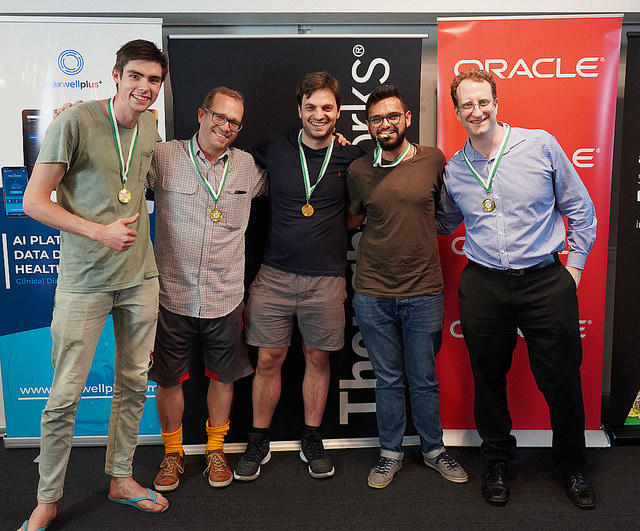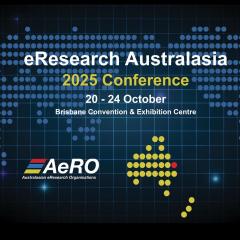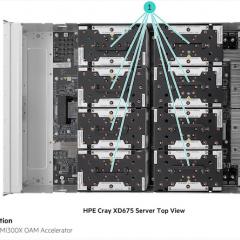
The team behind a platform for translating Australian sign language (Auslan) over video conferencing systems won first prize at this year’s RCC-sponsored Brisbane Health Hack.
There was previously no data set for recognising Auslan, but there is now, thanks to the Health Hack “Auslan Party” team, led by software engineers Kaamraan Kamaal and Tom Quirk from Brisbane video consultation solutions company Coviu, who pitched the initial concept.
The Auslan platform will help those who don’t speak sign language, such as telehealth providers, communicate with deaf people.
Health Hack Brisbane was held over the weekend of 14–16 September at ThoughtWorks’ Brisbane office. Its goal is to bring people with different skills together to solve pitched health and medical research-related problems and create open source solutions.
The “Asclepius” team claimed second prize for its app for real-time seizure prediction using biomonitors. Ruben Pellicer Guridi from UQ’s Centre for Advanced Imaging pitched the idea and led the Asclepius team, saying that epilepsy patients’ biggest fear was the unpredictability of seizures.
Third place went to team “Yabbi” for a real-time data visualisation tool for biofeedback rehabilitation, looking into what happens in people’s tendons and joints to create better treatments. The tool is already available for lab-use. Dr Claudio Pizzolato from Griffith University’s Orthopaedic Research and Education Alliance pitched the idea and led the team.
As well as seeing some great, real world outcomes from the event, RCC was particularly pleased that RCC staffer Thom Cuddihy jointly won ‘Supreme Coder of the Hackathon’ alongside Michael Swan and Daniel Pedroso. Thom was part of the team that won last year’s Brisbane Health Hack.
About 90 people participated in Health Hack Brisbane, and formed into teams to work on 11 projects.
RCC eResearch Analyst Dr Nick Hamilton, who acted as both chief “Problem Wrangler” and photographer for Health Hack (his photographs can be found here), said this year was notable for the number of machine learning problems brought to Health Hack. These included the winners, Auslan Party, as well as OkToTalk, an app for automatically recommending suitable psychologists for people based on their needs, preferences, and demographics; MLMedic, an easy-to-use environment to help clinicians and scientists measure and visualise the brain; and Eat Me, automated measurement of caloric intake by hospital patients from photographs of meal trays.
“Machine Learning being such a hot topic, possibly this was part of the reason that we had the largest number of coders and problem solvers we have ever had at HealthHack,” said Dr Nick.
See the Health Hack website for more information, including all the submitted problems the hackers worked on.



